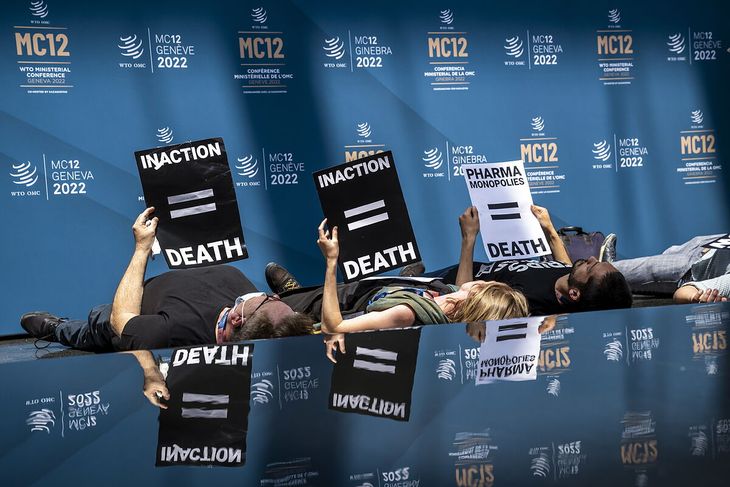The conference started with the aim of tackling food insecurity created by the Russian invasion of Ukraine, removing subsidies that encourage overfishing and emptying the oceans, temporarily lift patents on coronavirus vaccines and reform the WTO.
But since the beginning of the meeting, the hope of closing an agreement on all these issues was small due to the great divergences between the delegations. Ngozi herself had pinned passing one or two texts as a success.
Almost 36 hours later than expected, around 5 local, the general director of the organization announced the formal adoption of the texts.
WTO.jpg
In the context of the Russian military invasion, the text on food insecurity was awaited with special attention given the increase in prices caused by the war and the fear of an increase in hunger.
The adopted ministerial declaration stresses the importance of “not imposing export prohibitions or restrictions” that are contrary to WHO principles.
The text also asks that all the urgent measures adopted to protect the needs of the population itself, such as the ban on the export of certain products, “be temporary, specific and transparent.”
A second text was also approved protect sales intended for World Food Program (WFP), one of the main UN humanitarian agencies.
Until practically the last minute, the success of the agreement on the fishing was very uncertain after more than 20 years of negotiations on this issue, which already foundered at the last conference in 2017 in Buenos Aires.
Although the text was watered down from initial ambitions, Ngozi claimed it was a success.
The purpose, in line with the sustainable development goals of the United Nations Organization (UN), is to prohibit certain subsidies that encourage overfishing or illegal fishing.
WTO.jpg

To help developing countries, the WTO wants to deploy a fund that allows them to provide technical assistance and strengthen their capacities so that they can apply the agreement and help their fishermen towards more sustainable practices.
In the health section, after two and a half years of fighting the pandemic, the Member States agreed to facilitate the trade of medical products necessary in the fight against SARS-Cov-2, a relevant issue to avoid limiting the sales of certain materials.
Meanwhile, the moratorium on electronic transactions was also extended despite the reluctance of India and South Africa, who are sorry to see how a possible source of income escapes.
Source: Ambito
David William is a talented author who has made a name for himself in the world of writing. He is a professional author who writes on a wide range of topics, from general interest to opinion news. David is currently working as a writer at 24 hours worlds where he brings his unique perspective and in-depth research to his articles, making them both informative and engaging.




